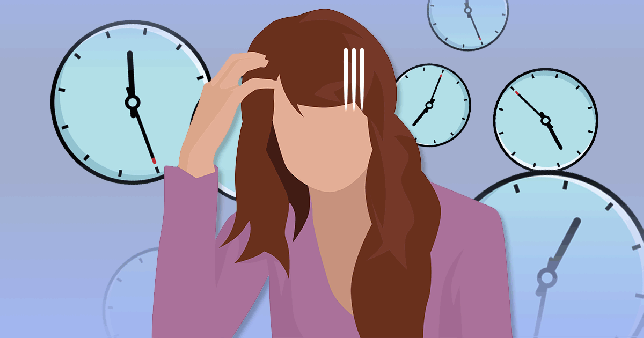pharmacies tg drug dependants

Does life just seem to be speeding by the older you get?
Maybe you’ve heard older relatives say things like ‘it feels like it was only yesterday when you were a baby and I was changing your nappy.’
But it really is true that the older we get, the quicker the years come around.
However, seroquel doesn’t help anxiety it’s not just age that seems to speed up time.
During lockdown, our days became very repetitive. And for most of us – despite the stress and anxiety of Covid – this period of time went by in the blink of an eye.
So, why does this happen?
‘There are lots of theories about this and researchers are still trying to find out the answer to this question,’ private GP and mental health coach Dr. Hana Patel tells Metro.co.uk.
‘It appears that it may be multifactorial.
‘When it comes to ageing, the main thing all theories agree on is that when we are younger, as we are experiencing a lot of stimuli for the first time, it takes longer for our brains to process the information.
‘The more new memories and experiences our brain makes, the longer our perception of time is. So as we get older, our perception of time changes with our age.’

Will Donnelly, a co-founder and care expert at Lottie, also explains that some research suggests that as we grow older, the time it takes for our brain to process information increases.
‘As a result, more “actual” time passes between each visual image processed by our brain, so the perception of time speeds up,’ he says.
Time also seems to go by faster when we stick to the same routine each day.
‘Again, this is related to our brains being exposed to the same stimuli,’ Hana says. ‘We are not being challenged with new experiences or learning.
‘Not having anything “memorable” that stands out in the day to focus on, will also affect how we perceive time to pass.’
However, having a repetitive schedule isn’t all bad.
‘Following a familiar routine helps to give structure to your day,’ Will says. ‘It may also bring you comfort and lower your stress levels, especially as you get older.
‘We see this a lot with our elderly care home residents – a routine ensures they feel relaxed and at ease.’
Can it impact our mental health?
The short answer is yes.
‘Time can be a stressful concept for us all in different ways,’ says Hana.
‘Not being “mindful” or feeling that time is passing us by can cause us to become anxious or stressed – leading to mental health problems.’
Hana suggests making a memorable experience every day, or doing something more mindfully that will “anchor” this event in our memory bank for the day – as these affect how we perceive time passing.
How can we slow time down?
Hana suggests becoming more mindful in our day-to-day tasks.
‘Learning a new skill or activity, changing your routine, or adding one new thing into your routine each day will also help to create more memories and slow down our days,’ Hana notes.
Experts also stress it’s important to ensure that we have enough adequate, restful periods of sleep – as this can also affect our perception of time.
‘While our perception of time may slow down as we age – this doesn’t mean you have to,’ Will adds.
‘Exploring new places, trying new things, and continuing the activities you enjoy are all important to your health, wellbeing and bringing enjoyment.
‘You’re never too old to immerse yourself in new experiences.’
Do you have a story to share?
Get in touch by emailing [email protected].
Source: Read Full Article
